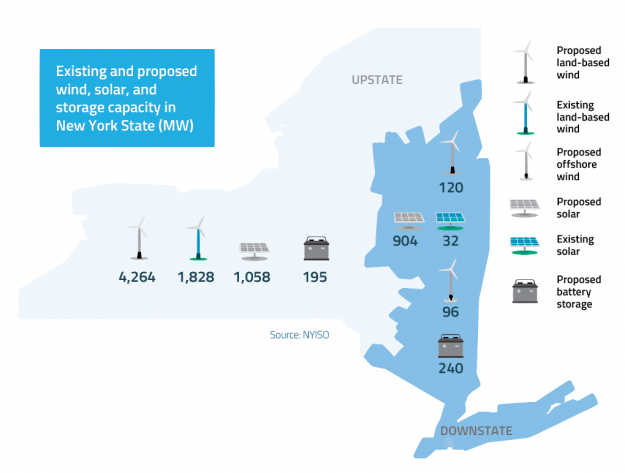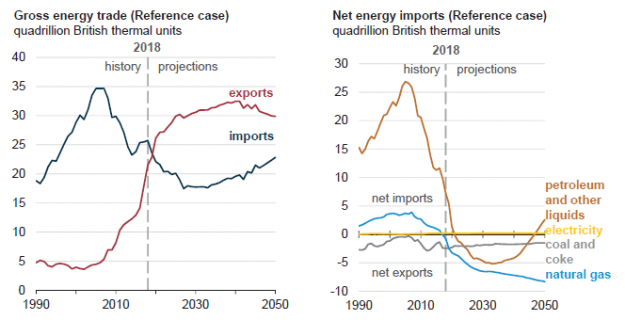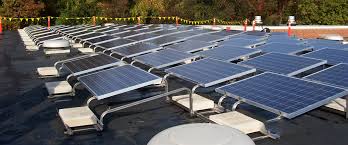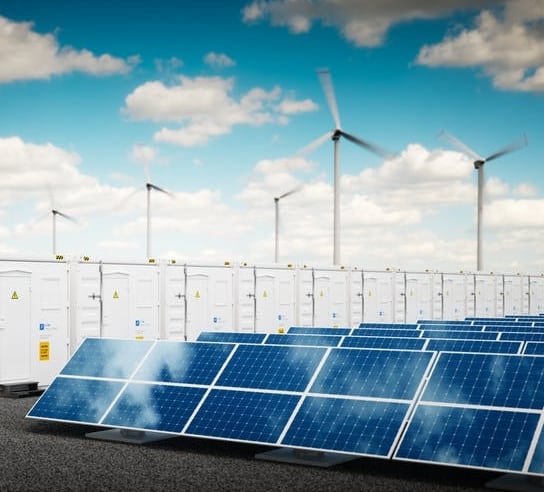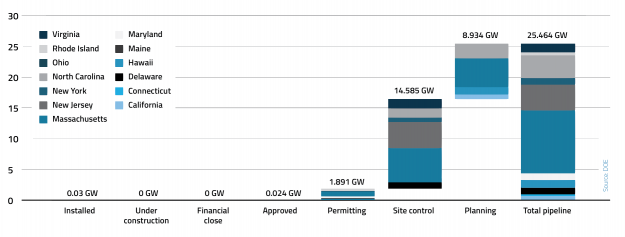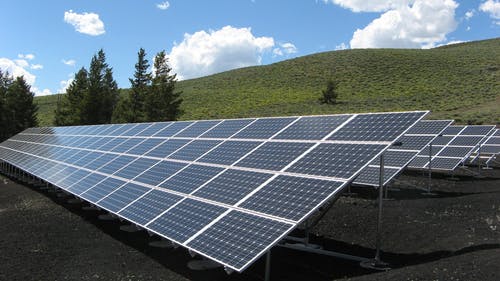EnerKnol’s Visual Primer – New York’s ‘Green New Deal’ Aims to Quadruple Offshore Wind, Double Solar in Bid for Carbon Neutrality
New York Democratic Governor Andrew Cuomo on Jan. 17 unveiled the most aggressive plan of any state to eliminate global warming emissions and achieve 100 percent carbon-free power in just a couple of decades. Cuomo's legislative package, dubbed the "Green New Deal," is designed to put the state on a path to wipe out its carbon footprint by 2040 by slashing the heat-trapping emissions not just in the power fleet, but across the entire economy including the transportation and agriculture sectors and through building efficiency.
